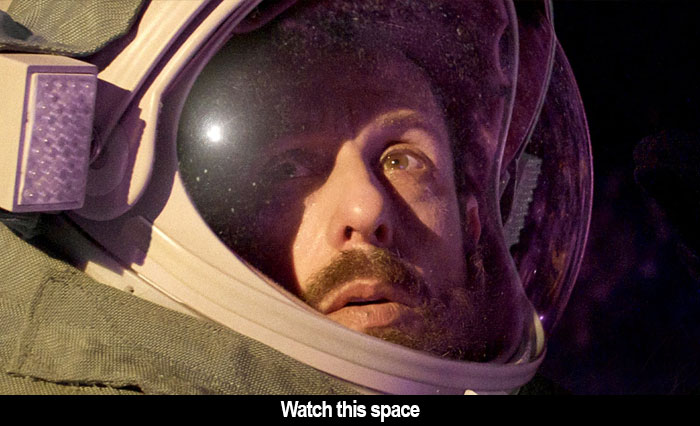Spaceman (2024) + Sometimes I Think About Dying (2024)
SPACEMAN
**/****
starring Adam Sandler, Carey Mulligan, Paul Dano, Isabella Rossellini
screenplay by Colby Day, based on the novel Spaceman of Bohemia by Jaroslav Kalfař
directed by Johan Renck
SOMETIMES I THINK ABOUT DYING
**/****
starring Daisy Ridley, Dave Merheje, Parvesh Cheena, Marcia DeBonis
written by Kevin Armento, Stefanie Abel Horowitz, Katy Wright-Mead
directed by Rachel Lambert
by Walter Chaw Its basic set-up is like Duncan Jones’s Moon: a lone astronaut, far from home and tethered only by occasional contact with the partner he’s left behind on Earth, finds some solace in conversations with an alien/artificial intelligence. But this genre of listless Rocket Men and their internal melodramas traces back to Douglas Trumbull’s Silent Running, right? Or that 1964 episode of the original “Twilight Zone”, “The Long Morrow”? Apocalypse-tinged futureworlds centred around Byronic heroes. Where its antecedents rarely showed the strain of their creation, however, Johan Renck’s Spaceman (an adaptation of Jaroslav Kalfař’s Spaceman of Bohemia) often does. It has good taste, and maybe even the right idea in putting a man in isolation in order to Altered States him into a cleaner understanding of his essential self, but it’s better at pounding out the notes than it is at hearing the music. While I didn’t hate it, I am, I suspect, squarely in its target audience of pretentious, sad, The Fountain-loving Proust-readers, so it never drowned me like I hoped it would. Me, whose pockets are always filled with the smooth rocks I picked along the shore.

